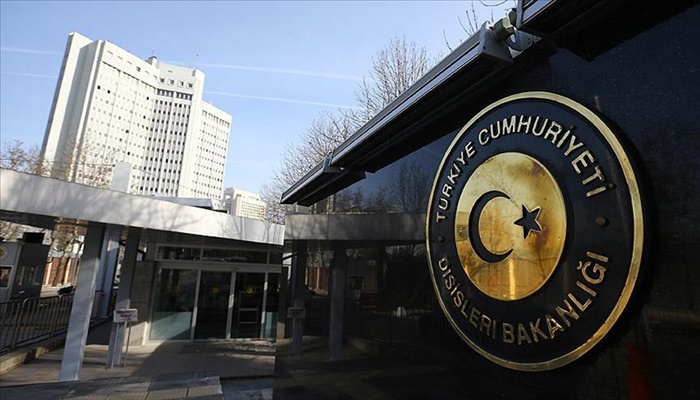A report by the European Union’s intelligence-sharing unit, INTCEN, stating that Turkish Islamic scholar Fethullah Gülen did not order a failed coup in Turkey on July 15, has disturbed the Justice and Development Party (AKP) government in Ankara, which has been accusing Gülen of complicity from the first hours of the abortive coup.
After news about the INTCEN report was published by London’s The Times newspaper and the euobserver website earlier this week week, the Turkish Foreign Ministry issued a statement on Saturday, describing the report as “baseless, one-sided and ignorant claims.”
The Foreign Ministry noted that EU authorities had confirmed neither the report nor its content.
The document, written by INTCEN, the EU Intelligence and Situation Centre, says a post-coup purge of supposed Gülen supporters led by President Recep Tayyip Erdoğan was designed to deepen his grip on power, euobserver reported on Jan. 17.
The report by INTCEN concluded that the coup was mounted by a range of opponents to Erdoğan and his ruling AKP, reported the Times newspaper, also on Jan. 17.
“The European intelligence contradicts the Turkish government’s claim that Fethullah Gülen, an exiled cleric, was behind the plot to overthrow the Turkish government.”
Reiterating the government’s position on the July 15 coup attempt, the Turkish Foreign Ministry claimed that it had been proven with evidence that the coup attempt was carried out by the Gülen movement but did not mention any details of “the evidence.”
“If the claims are true that EU intelligence institutions prepared such a report, this is the most explicit indication of the ill-intention of the EU,” said the Foreign Ministry in its statement.
In a blow to Turkey’s claims that Gülen masterminded the coup, the European intelligence report noted that Gülen followers were weak in the Turkish army, which until last July remained a bastion of secularism.
“It is unlikely Gülen really had the abilities and capacities to take such steps. There is no evidence that the army, [which] considers itself as the guardian of Turkey as a secular state, and the Gülenists were willing to co-operate with each other to oust Erdoğan. The Gülen movement is very disconnected and somewhat distant from the secular opposition and Turkish army,” the report said.
According to the EU intelligence agencies, the military coup began after reports of a “far-reaching purge” began to circulate in the days running up to the attempted seizure of power on July 15. The expected purge drew in secular opponents of Erdoğan and galvanized sections of the military opposed to Erdoğan’s policies of intervention in Syria and against the Kurds.
Turkey survived a military coup attempt on July 15 that killed over 240 people and wounded more than a thousand others.
Strongly denying having any role in the putsch, Fethullah Gülen called for an international investigation into the coup attempt, but President Erdoğan — calling the coup attempt “a gift from God” — and the government initiated a widespread purge aimed at cleansing sympathizers of the movement from within state institutions, dehumanizing its popular figures and putting them in custody.
A report published by the German Focus magazine in August claimed that Turkish government members decided to put the blame for the coup attempt on Gülen half an hour after the uprising and agreed to begin a purge of Gülen followers the next day.
More than 135,000 people have been purged from state bodies, in excess of 90,000 detained and over 43,000 have been arrested since the coup attempt. Arrestees include journalists, judges, prosecutors, police and military officers, academics, governors and even a comedian. Critics argue that lists of Gülen sympathizers were drawn up prior to the coup attempt.

